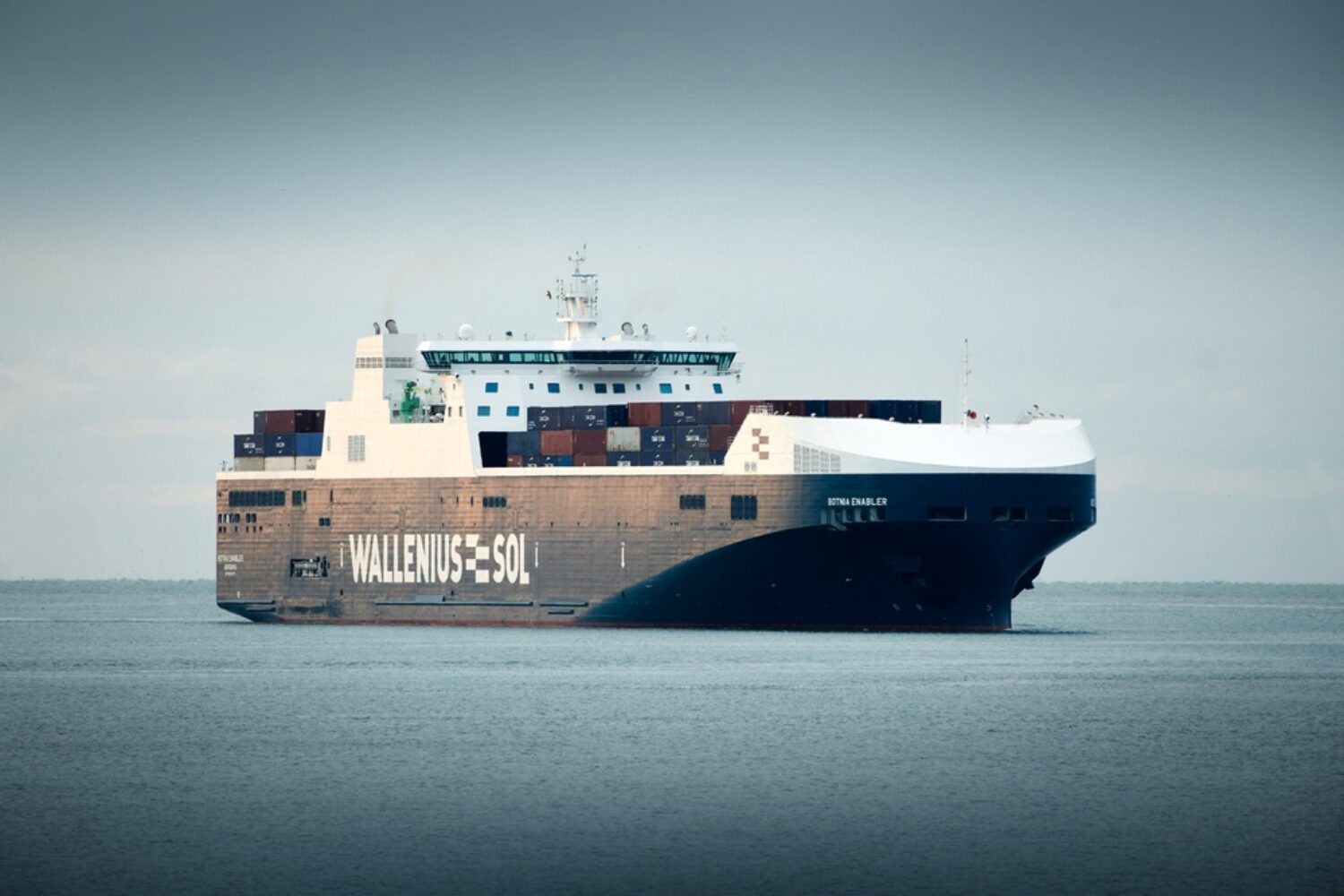The shipping company joint venture Wallenius SOL will use liquefied biogas (LBG) as fuel in its multi-fuel ConRo ships “Baltic Enabler” and “Botnia Enabler” in future. This is based on a new agreement with the Finnish energy company Gasum.
The Swedish shipping company is thus taking a further step on its Climate Roadmap with the aim of reducing the carbon footprint of its transports. The first LBG bunkering took place at the beginning of October.
Gasum supplies the biogas as part of a pooling agreement. This allows renewable fuels to be used on a larger scale in shipping. LBG is obtained from organic waste streams and is chemically identical to LNG, meaning that the ships’ dual-fuel engines do not require any adjustments.
“We want to be the natural partner for sustainable maritime logistics in the Gulf of Bothnia and Europe,” explains Rebecca Tagaeus, Sustainability Officer at Wallenius SOL. “The switch to LBG for the ‘Baltic Enabler’ and ‘Botnia Enabler’ shows that our roadmap is working – and that we are actively investing in our customers’ climate goals.”
By using LBG, shippers can reduce their indirect emissions (Scope 3). The biogas, which is RED II certified and traceable via ISCC, is produced from Nordic residual streams and therefore does not compete with food production.
“We are delighted that Wallenius SOL has joined our FuelEU Maritime pool. This allows us to provide shipping companies with additional regulatory surplus at this crucial point,” explains Jacob Granqvist, Vice President Maritime at Gasum. “The window of opportunity to secure compliance for 2025 is closing fast – the available capacity could be exhausted before the end of the year.”
LBG offers significant climate benefits compared to fossil LNG: Although combustion produces similar emissions, the carbon released comes from renewable sources and is part of a short biological cycle. Through the agreement with Gasum, Wallenius SOL aims to accelerate the use of renewable energies in Northern European shipping.
Founded in 2019, the Wallenius-SOL joint venture operates weekly services from Zeebrugge and Antwerp via Germany (Travemünde) to Kokkola, Oulu, Kemi and Skellefteå and back. The most important industrial customers include Northvolt, Metsä and Stora Enso. The ships thus provide a key factor for sustainable supply chains in the Baltic Sea region for the pulp, paper and energy industries.













